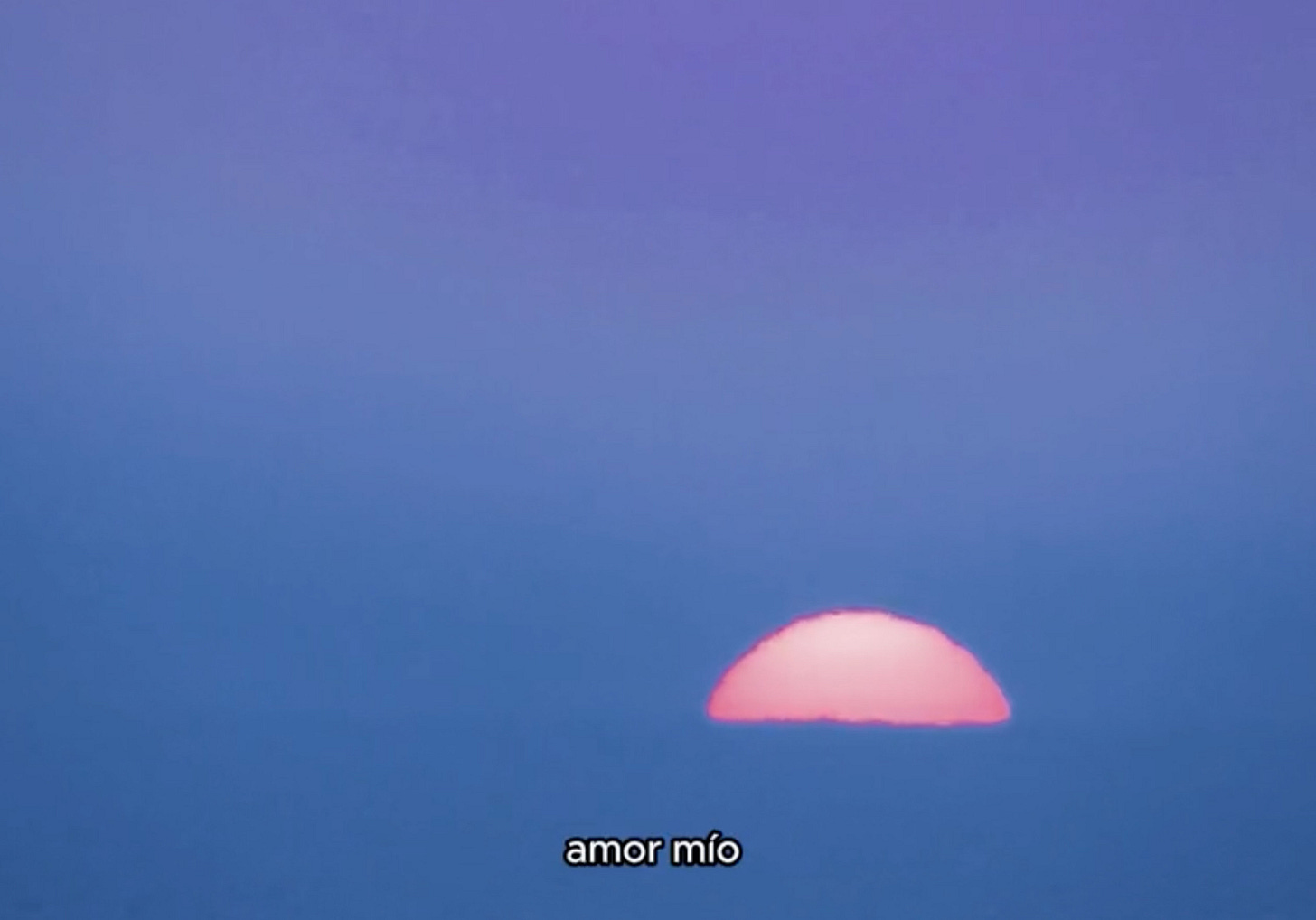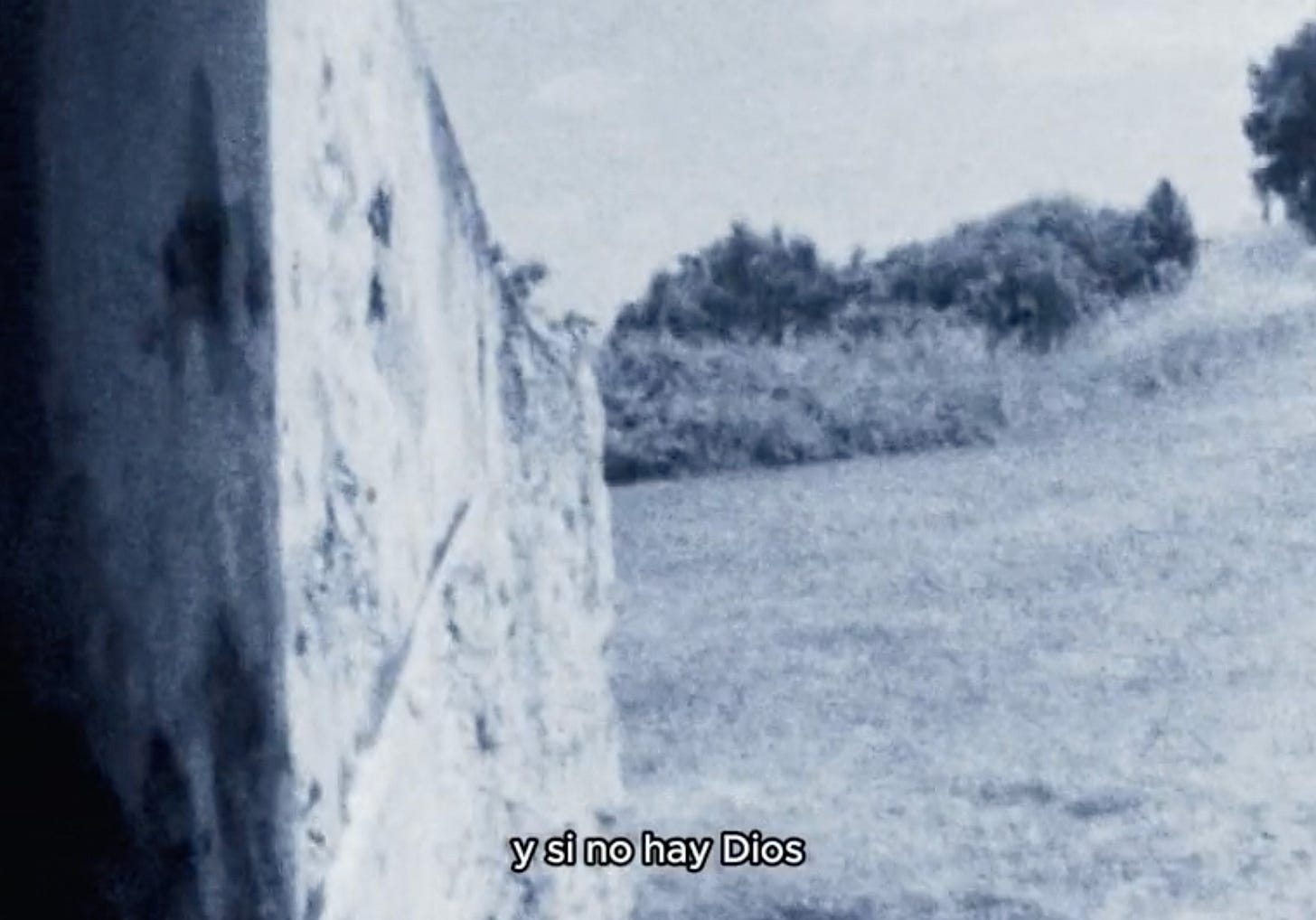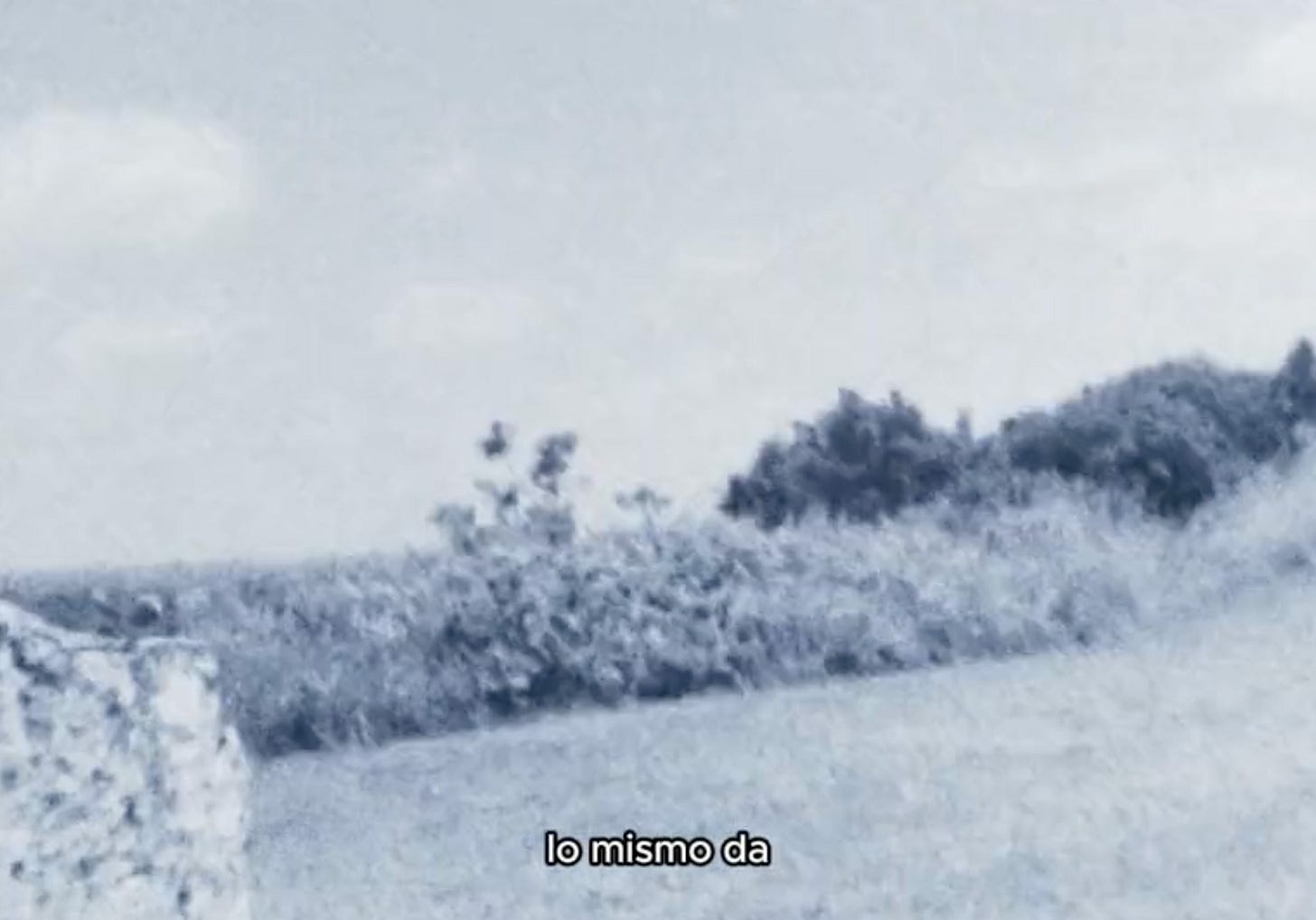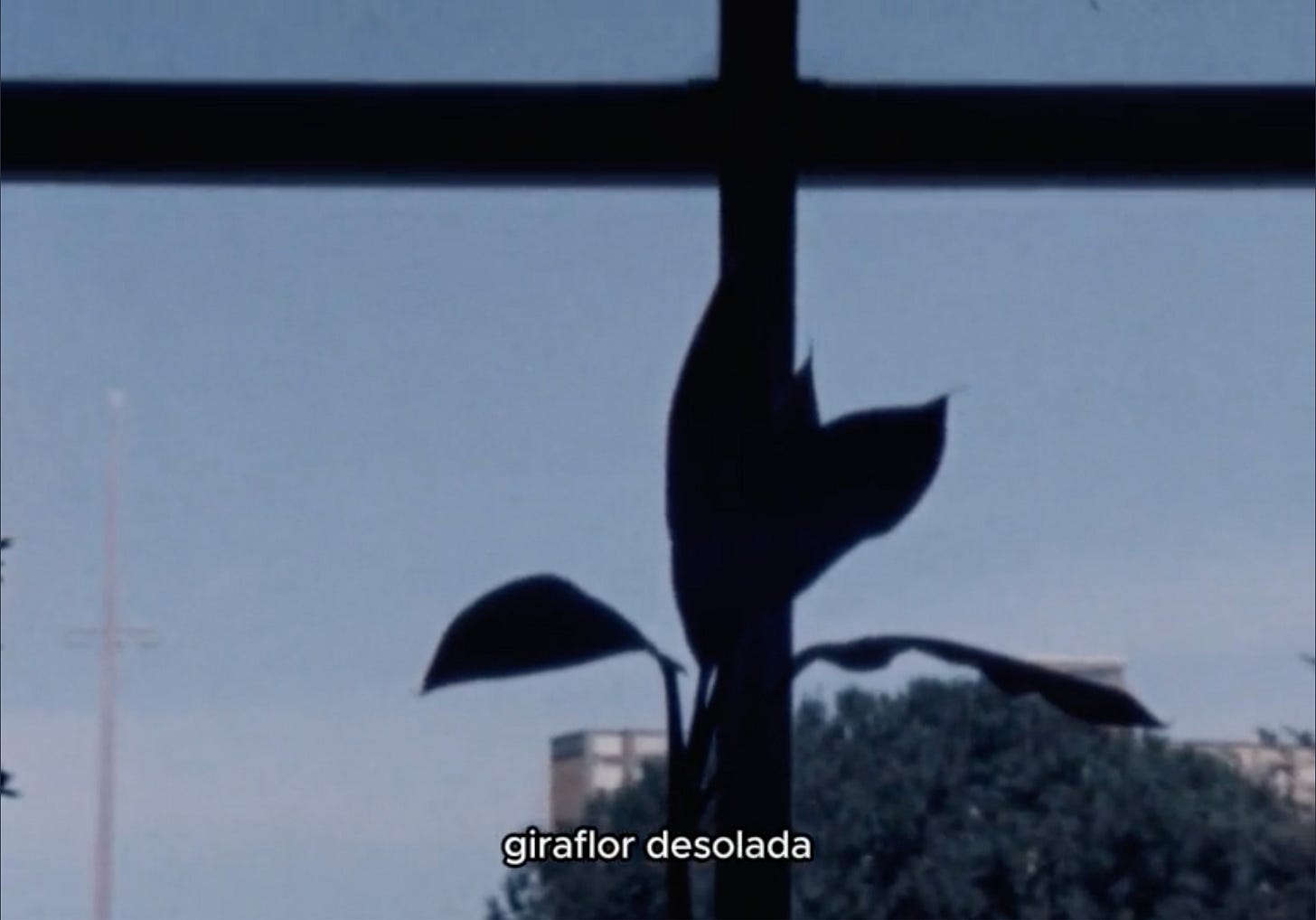Every act of translation is:
1. An act of mitigating loss 2. A circumnavigation 3. A futile game of differentiations
Good morning. For a post-valentine’s day read, I wanted to share the process of trying to translate the poem, Poema Tristísimo, for my partner.
Every act of translation is an act of mitigating loss
For the better part of a month, I’ve been engaged in the fruitless endeavor of trying to translate a poem.
My first instinct, naturally, was to translate it to the best of my ability. What I wasn't prepared for was how much in me would change, how by the end of it I would have completely lost the reason I had set out to translate it in the first place.
Nothing makes me feel the limitations of language more than when I’m trying to figure out how to distill the part of me that is locked away behind a language barrier.
Every act of translation is a circumnavigation
After being together for five years, I would wager that my love knows me quite well. Cheesily, I would say he knows me quite better than anyone else, than even myself at times. And yet, to be loved is to be seen completely, no? And I can’t help but feel this hidden room inside me, maybe a trap door, or a locked broom closet.
I explained it to him as this: the core of me is the same, but the languages act as filters, and the shape of English is so vastly different than Spanish. There are more holes, I think, in the Spanish filter. It's more porous, less is left behind.
This seems to be a common sentiment internationally, that even though English may come easier at times, especially in academic contexts, there’s something primal about the mother tongue. The language that first gives you access to the world, strikes into the emotional core of oneself that cannot be understated. Sometimes I wonder how to explain the loss that comes with only communicating with my partner in English.
When I try to explain this to my partner, I often talk around the thing as a way to strike to its deepest truth (another act of translation). Usually I throw out a bunch of examples, like the one time I had a nightmare after years of nothing. Since I was a child, I’ve had nightmares where someone’s chasing me. I remember waking from this particular dream right before I was caught, just as my legs gave out. I did the “jolt awake” move, and I remember just immediately blubbering in near tears a flurry of Spanish words before cutting myself off mid-sentence, suddenly realizing I wasn’t speaking English.
I tell him it’s like, whenever we’re in any real danger, I immediately start praying El Padre Nuestro. It’s more ritual than anything, and I’m not even aware I’m doing it.
I don’t know why it’s so important for me to share this with him, why I believe he must have this context. It would be silly and untrue to say, “You don’t know me without knowing my language.” It feels selfish.
Maybe wanting to be loved is a selfish act.
Or maybe it’s just that I want to be loved in a way I can understand.
I keep thinking back to the poem and what it holds that I can’t translate, what I am so desperate for him to understand.
Every act of translation is futile game of differentiations
Here. I will do some translating. The poem’s speaker is reassuring his “soul,” his love, about dying. The poem meanders around the idea of being together after death, either in the afterlife or not. One of my favorite lines is:
Y si no hay Dios
lo mismo da
Recordaremos el sol
And if there is no God
So be it
We’ll remember the sun
What gets me about the poem is that it’s littered with references to heat. To the sun. To flesh.
Its writer, Gonzalo Arango, situates the poem in Cali, Colombia. It’s not a coastal city, but there’s something about this poem that reminds me of the ocean. Of the beach.
My partner and I met under the heat of the Floridian sun. There’s something about the repetition of the sun and its rays of light within the poem that throws me back into our first shared apartment, with our giant window in the living room that faced east. Hermes, our cat, would sit on the window sill and laze all afternoon, and whenever we’d stop to pet him, his orange fur would shock us because of how much heat he retained.
The sun motif is established in the very first lines of the poem:
Si muero
te invito al sol
alma mía
If I die
I invite you to the sun
my soul
Something about these lines reminds me of the four hour drive we took back to my childhood home, this gaudy house painted bright orange. I had pointed out to him the little foxtail palm growing next to the garage, recalling that one summer day when I was ten, I ran over the seed it sprouted from with my bike, and how I begged my parents to try and plant it. My stepdad tentatively planted it in the yard with me, curbing my expectations by saying it could’ve been too late in the season. Even though we don’t live there anymore, if you go on google map’s street view, you can still see it growing.
I remember the first time I took him to my favorite beach. He wasn’t one for summer, or the heat, and don’t get me wrong, neither was I. The ocean was my exception. I put on my hyper-specific spotify playlist, one I had made years prior and that I only play on beach days. I had given him the full south-Floridian experience, stopping at Publix before our destination, stocking up on sunblock for his freckled body, and grabbing pub-subs (sandwiches) and kettle-cooked chips.
My car’s a/c has struggled ever since she came into my life, and so as we zipped down I-95, I had the windows down. I think he had a buzz cut at the time, but I remember my hair was whipping violently. I think I had given him my sunglasses at some point. I remember being in awe at how his pale eyes were more sensitive to the light than mine.
I remember the wind was roaring, and the music was blasting, and the sun was shining, warming up the interior of the car into an almost unbearable searing heat.
We parked the car and immediately ran into the water, stopping only briefly to throw off our flip flops. The water was warm as always, and he had this thing about his head being under the water, some deeply ingrained fear of drowning. I told him both my maternal and paternal grandmothers had almost drowned at some point in their youth, causing them to also fear their heads being submerged.
This, of course, hadn’t stopped me from trying to splash him with the salty water.
Once we were tuckered out, both from swimming and the heat, we plopped down on my familial beach towel, this giant blanket that could easily seat four people. He had to close his eyes, the sky was too bright. I remember I was squinting at the horizon line, staring at where the sea turned from murky green into a deep cerulean blue.
I never feel more like a body than when the sun is beating down my skin.
Maybe a better translation, a far truer one that I could get to with words, would be this:
I’d sit him down with his eyes closed, shuffle that summer playlist, and ask him to remember the sound of the waves.
Thanks for reading. This little piece is dedicated to my lovely partner Dustin Mallory.
Diego Pablo is a painter and writer (+ aspiring graphic designer), from South Florida. He’s in his last semester of graduate school at VCU (and is trying not to have a thesis-induced melt down).












